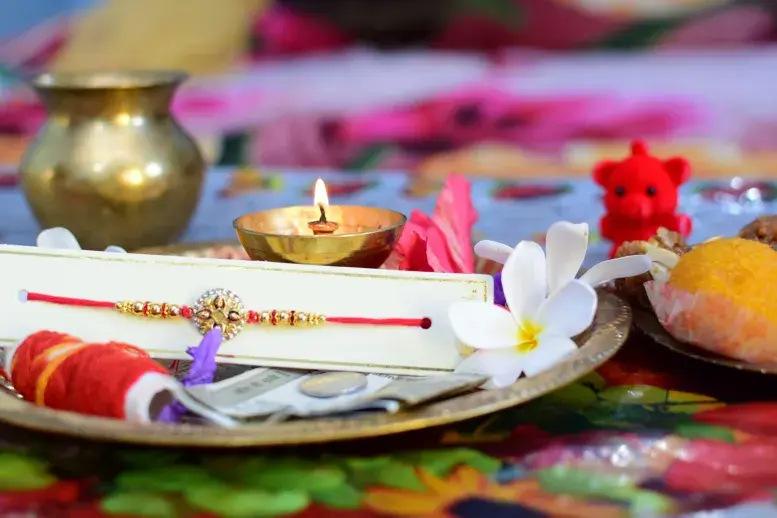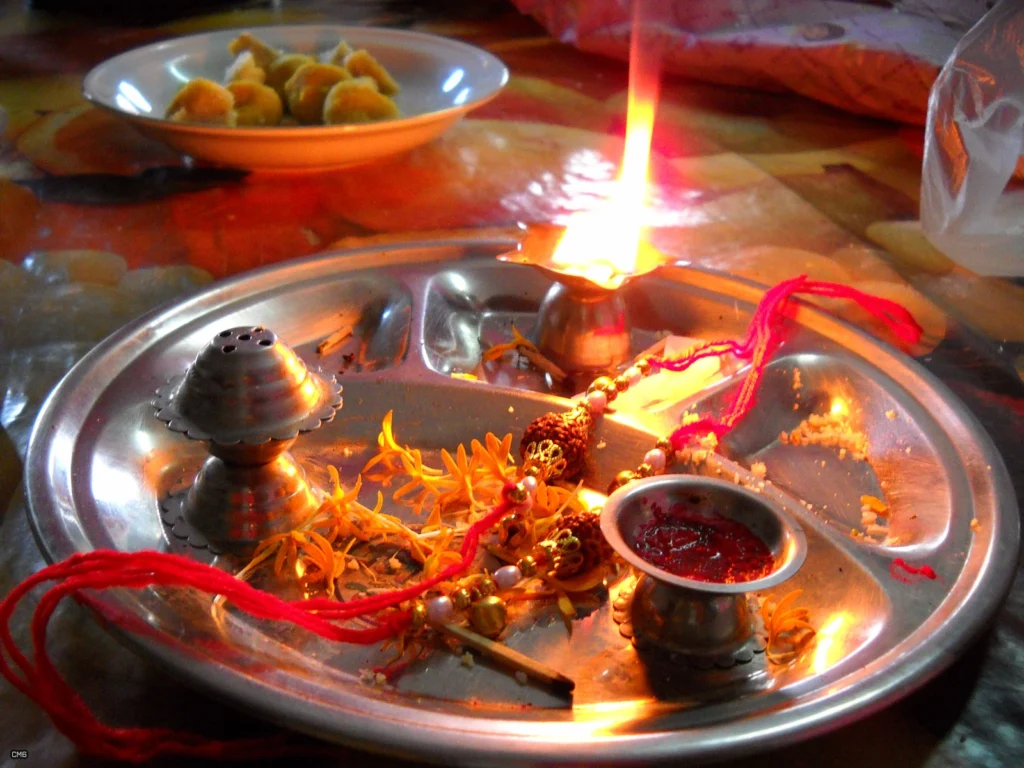
Raksha Bandhan 2025 on August 9th with love and tradition. Discover the festival’s history, rituals, gift ideas, and latest celebration trends.There are simply not enough terms for describing the special tie that connects a brother and a sister. Everywhere in the world relationships between siblings is prized and recognized special. The relationship is even more valuable in India, though, where a holiday known as “Raksha Bandhan” is a tribute to caring sisters.
This beautiful Hindu festival symbolizing the love between brother and sister is celebrated in various countries like India and Nepal. In the Hindu luni-solar calendar, Raksha Bandhan is observed on the full moon day of the month of Shravana, which commonly happens during August in the Gregorian calendar.
What Raksha Bandhan 2025 means
The two regards that make up the festival is “Raksha” and “Bandhan.” The happening means “the tie or knot of protection” in Sanskrit, where “Raksha” represents the protection and “Bandhan” represents the verb for binding. When taken as entirety, the event represents the longstanding affection of a brother-sister bond, which extends beyond familial connections. Cousins, sister and sister-in-law (Bhabhi), fraternal sisters (Bua) and cousins (Bhatija), and other similar connections also celebrate it.
The Significance of Raksha Bandhan in Indian Traditions
Raksha Bandhan holds a special place in Indian culture, symbolizing the deep bond of love and protection between brothers and sisters. While it is primarily celebrated by Hindus across India—especially in the northern and western regions—it is also observed in countries like Nepal, Pakistan, and Mauritius where Hindu communities reside.
In Jainism, the festival is honored as well, with Jain monks tying ceremonial threads on devotees as a mark of blessings and spiritual commitment.
Sikh communities recognize a similar tradition known as Rakhardi or Rakhari, which also celebrates the protective and affectionate relationship between siblings.
Origins of the Hindu Festival Raksha Bandhan 2025
Raksha Bandhan is a cherished festival in Hindu culture, with roots that go back thousands of years. There are several stories in Hindu mythology that explain its origin, each highlighting the deeper meaning of protection and sacred bonds.
One such legend comes from the Bhavishya Purana, which tells of a fierce battle between the gods and demons. The powerful demon king Bali was challenging Lord Indra, the king of the heavens and god of rain and thunder. The war dragged on without any clear outcome.
Concerned for her husband’s safety, Indra’s wife, Sachi, sought help from Lord Vishnu. He gave her a sacred cotton thread, blessed with divine power. Sachi tied the thread around Indra’s wrist before he returned to battle. Strengthened by her love and the blessings of the thread, Indra eventually defeated the demons and reclaimed his heavenly kingdom, Amaravati.
Interestingly, in these ancient stories, the sacred thread wasn’t tied by sisters to brothers as it is today. Instead, women tied it to their husbands or warriors as a protective charm before they went off to war, and offered prayers for their victory and safety.
King Bali and Goddess Lakshmi: A Raksha Bandhan 2025 Legend
Another beautiful story linked to the origin of Raksha Bandhan comes from the Bhagavata Purana and Vishnu Purana.
After Lord Vishnu defeated King Bali and claimed the three worlds, Bali requested that the Lord stay with him in his palace. Vishnu agreed and began living there. However, his wife, Goddess Lakshmi, longed for her husband to return to their heavenly home, Vaikuntha.
To bring him back, Lakshmi came up with a gentle plan. She visited King Bali in disguise and tied a sacred thread—what we now call a rakhi—around his wrist. She treated him as her brother, and touched by her gesture, Bali asked what she wanted in return. Lakshmi then revealed her identity and asked him to release Lord Vishnu from his promise so they could return to Vaikuntha.
Santoshi Maa
In old Hindu stories, Lord Ganesha had two sons named Shubh and Labh.. Both were saddened by the fact that they didn’t have a sister to celebrate Raksha Bandhan with, like many others did.
Seeing their disappointment, and upon the wise suggestion of Saint Narada, Lord Ganesha decided to fulfill their wish. Using divine powers and sacred fire, he created a daughter—Santoshi Maa.
Thus, on the occasion of Raksha Bandhan, Shubh and Labh were blessed with a sister. This heartwarming tale adds another layer of meaning to the festival, emphasizing love, family, and the joy of sibling bonds.
Moved by her devotion and love, Bali agreed.He freed Lord Vishnu from the fast, and allowed him to return home with Goddess Lakshmi.
This tale is a powerful reminder that Raksha Bandhan isn’t just about siblings—it also celebrates love, loyalty, and the bond of protection between people, even across unexpected relationships.
A Raksha Bandhan Tale of Krishna and Draupadi
Before the great war got started, Kunti tied her grandson Abhimanyu in a holy thread and prayed for his protection, according to the Mahabharata.The Pandava’s wife, Draupadi, tied Lord Krishna a rakhi at around the same time. That act indicated her strong trust in him and their supportive relation.
Yama and Yamuna: A Story of Sibling Love
According to an old legend, Yama—the god of death—did not visit his sister Yamuna for 12 long years. This made Yamuna feel very sad and lonely, as she deeply missed her brother. Seeing her sorrow, the river goddess Ganga encouraged Yama to finally meet his sister.
When Yamraj came to Yamuna, Yamuna was very happy to see him again. She often expressed how much she had longed for this reunion. Touched by her love and devotion, Yama granted Yamuna a special blessing—he made her immortal so they could always be together.
This touching tale of love between a brother and sister is believed to be the origin of the Bhai Dooj festival, which, like Raksha Bandhan, celebrates the strong bond shared by siblings.
Why Raksha Bandhan is Celebrated

Raksha Bandhan is a special festival that honors the bond of love and responsibility between brothers and sisters. It’s not just for siblings by blood—it also celebrates the meaningful relationships shared by cousins, relatives, and even close family friends who treat each other like siblings.
On this day, a sister ties a rakhi (a sacred thread) on her brother’s wrist, wishing him good health, happiness, and success. In return, the brother gives her gifts and promises to protect her throughout life, no matter what challenges come their way.
This beautiful tradition highlights the values of care, trust, and lifelong support within families and communities.
